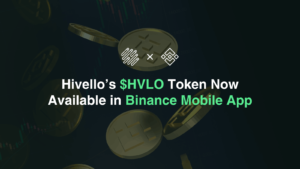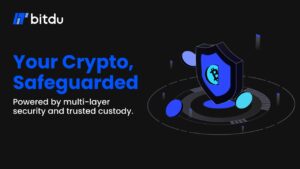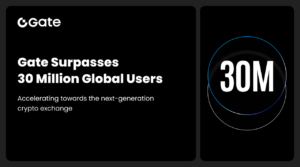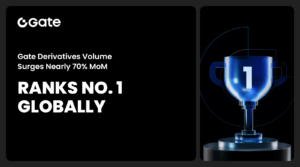
Exploring Blockchain-Based Solutions for IoT Data Monetization
In recent years, the Internet of Things (IoT) has revolutionized the way we interact with technology. IoT has brought about a new era of connectivity and data generation, from smart homes and wearable devices to industrial automation and smart cities. However, with this massive influx of data comes the need for effective data monetization strategies. This is where blockchain technology comes into play. This article will explore the potential of blockchain-based solutions for IoT data monetization and their impact on various industries.
Introduction to IoT Data Monetization
IoT devices generate vast amounts of data that can be leveraged to extract valuable insights and create new revenue streams. IoT data monetization refers to the process of extracting value from this data and turning it into a profitable asset. By analyzing and monetizing IoT data, businesses can gain valuable insights, optimize operations, and develop innovative products and services.
Understanding Blockchain Technology
Blockchain is a decentralized digital ledger that securely records transactions across multiple computers. It operates on a peer-to-peer network, eliminating the need for intermediaries. Each transaction, or block, is encrypted and linked to the previous block, forming a chain of blocks. This chain is distributed and synchronized across the network, ensuring transparency and immutability. Blockchain provides a tamper-proof and transparent platform for various applications, including financial transactions, supply chain management, and data sharing. Its key features, such as decentralization, security, and transparency, make it a promising technology with wide-ranging potential for transforming industries and processes.
The Intersection of IoT and Blockchain
The combination of IoT and blockchain technologies holds tremendous potential for data monetization. IoT devices can collect real-time data, which can then be securely stored on the blockchain. This ensures data authenticity and prevents tampering, creating trust among stakeholders. Blockchain also enables secure peer-to-peer transactions and eliminates the reliance on centralized authorities.
Advantages of Blockchain-Based Solutions for IoT Data Monetization
- Enhanced Data Security: Blockchain technology ensures data integrity and security through cryptographic techniques. The decentralized nature of blockchain eliminates single points of failure, making it resistant to tampering and unauthorized access.
- Transparency and Traceability: Blockchain provides a transparent and immutable record of transactions. This transparency builds trust among participants, as all stakeholders can verify and audit the data, ensuring the integrity and authenticity of IoT data.
- Efficient and Trustworthy Transactions: With blockchain, IoT data monetization transactions can be executed directly between parties without the need for intermediaries. Smart contracts automate the exchange and compensation mechanisms, ensuring faster, secure, and reliable transactions.
- Fair Compensation for Data Providers: Blockchain-based solutions enable fair compensation for data providers. Through the use of smart contracts, predefined conditions can be set to automatically trigger payments based on data usage, eliminating delays and disputes.
- Data Privacy and Ownership: Blockchain allows for granular control over data privacy and ownership. IoT data can be stored on the blockchain while maintaining privacy rights and access control. This empowers individuals and organizations to maintain ownership and control over their data.
- Increased Data Monetization Opportunities: Blockchain opens up new opportunities for monetizing IoT data. The secure and transparent nature of blockchain builds trust among data consumers, leading to increased demand for high-quality data and the creation of new revenue streams.
- Streamlined Data Exchange: Blockchain simplifies and streamlines the process of data exchange between multiple stakeholders. It eliminates the need for complex and time-consuming data-sharing agreements, enabling seamless and efficient data transactions.
- Auditability and Compliance: Blockchain provides an auditable trail of data transactions, ensuring regulatory compliance. This feature is particularly important in industries with stringent data regulations, such as healthcare and finance.
- Scalability and Interoperability: Advancements in blockchain technology are addressing scalability and interoperability challenges, allowing for the integration of large-scale IoT networks. This paves the way for the efficient handling of massive amounts of IoT data and seamless interoperability between different IoT devices and platforms.
- Innovation and Collaboration: Blockchain-based solutions encourage collaboration and innovation in the IoT ecosystem. They provide a secure and transparent platform for data sharing, allowing different stakeholders to collaborate and create new value-added services based on shared data.

Exploring Blockchain-Based Solutions for IoT Data Monetization
Use Cases of Blockchain in IoT Data Monetization
Supply Chain Management
Blockchain can revolutionize supply chain management by providing end-to-end visibility and transparency. With IoT devices integrated into supply chains, blockchain can track the movement of goods, monitor conditions, and verify authenticity. This enables efficient inventory management, reduces fraud, and ensures the delivery of genuine products.
Energy Sector
In the energy sector, blockchain-based solutions can enable peer-to-peerenergy trading and incentivize renewable energy generation. IoT devices can collect real-time energy consumption data, which can be securely stored on the blockchain. This data can then be used to create a transparent marketplace where energy producers and consumers can directly trade energy without intermediaries. This not only promotes renewable energy adoption but also provides a fair and efficient system for energy distribution.
Healthcare Industry
Blockchain and IoT can revolutionize the healthcare industry by securely managing and sharing sensitive patient data. IoT devices can collect real-time health data, such as vital signs and medication adherence, which can be stored on the blockchain. This enables healthcare providers to access accurate and up-to-date patient information, leading to improved diagnostics, personalized treatments, and more efficient healthcare delivery.
Smart Cities
Blockchain and IoT technologies can transform cities into smart, efficient, and sustainable environments. IoT sensors deployed across the city can collect data on traffic patterns, energy consumption, waste management, and more. This data can be securely stored and shared on the blockchain, enabling city authorities to make data-driven decisions, optimize resource allocation, and improve the quality of life for residents.
Overcoming Challenges in Implementing Blockchain for IoT Data Monetization
While blockchain-based solutions for IoT data monetization offer significant advantages, several challenges need to be addressed. These include scalability issues, interoperability between different blockchain platforms, regulatory compliance, and data privacy concerns. Collaboration between industry stakeholders, technological advancements, and regulatory frameworks are crucial to overcoming these challenges and realizing the full potential of blockchain in IoT data monetization.
Best Practices for Implementing Blockchain-Based Solutions
To effectively implement blockchain-based solutions for IoT data monetization, organizations should consider the following best practices:
- Identify suitable use cases: Assess the specific IoT data monetization opportunities within your industry and identify use cases where blockchain can add value.
- Select the appropriate blockchain platform: Evaluate different blockchain platforms based on scalability, security, interoperability, and industry-specific requirements.
- Establish data governance: Define clear data ownership, access rights, and privacy policies to ensure compliance and build trust among participants.
- Design robust smart contracts: Develop smart contracts that automate data exchange, compensation, and other predefined conditions, ensuring transparency and efficiency.
- Collaborate with industry partners: Foster collaboration with stakeholders, including data providers, data consumers, and regulators, to create a vibrant ecosystem that promotes data monetization and innovation.
The Future of Blockchain and IoT Data Monetization
The convergence of blockchain and IoT will continue to reshape industries and unlock new possibilities for data monetization. As blockchain technology matures, scalability improves, and regulatory frameworks evolve, we can expect widespread adoption of blockchain-based solutions for IoT data monetization. This will drive innovation, foster new business models, and create a more equitable data economy.
Conclusion
Blockchain-based solutions have the potential to revolutionize IoT data monetization. By leveraging the security, transparency, and efficiency offered by blockchain technology, businesses can unlock the value of IoT data and create new revenue streams. However, successful implementation requires careful planning, collaboration, and adherence to best practices. As we continue to explore the possibilities, it is essential to embrace the transformative power of blockchain and IoT to shape a data-driven future.
FAQs
Q1: What is IoT data monetization? A1: IoT data monetization refers to the process of extracting value from the data generated by IoT devices and turning it into a profitable asset. It involves analyzing and leveraging IoT data to gain insights, optimize operations, and create new revenue streams.
Q2: How does blockchain ensure data security in IoT data monetization? A2: Blockchain ensures data security in IoT data monetization by encrypting data, creating an immutable record,and providing transparency. The decentralized nature of blockchain eliminates the need for intermediaries and reduces the risk of data tampering. Additionally, the transparency of blockchain allows all stakeholders to verify and audit transactions, building trust and enhancing data security.
Q3: What are the benefits of using blockchain for IoT data monetization? A3: Blockchain offers several advantages for IoT data monetization. It provides enhanced data security, transparency in transactions, and efficient data monetization processes. Blockchain also enables secure peer-to-peer transactions, eliminates the reliance on centralized authorities, and ensures fair compensation for data providers.
Q4: What are some use cases of blockchain in IoT data monetization? A4: Blockchain can be applied in various industries for IoT data monetization. Some examples include supply chain management, energy sector, healthcare industry, and smart cities. In supply chain management, blockchain can provide transparency and traceability of goods. In the energy sector, blockchain facilitates peer-to-peer energy trading. In healthcare, it securely manages and shares patient data. In smart cities, blockchain enables data-driven decisions for resource optimization.
Q5: What are the challenges in implementing blockchain for IoT data monetization? A5: Implementing blockchain for IoT data monetization comes with challenges such as scalability, interoperability between different blockchain platforms, regulatory compliance, and data privacy concerns. Overcoming these challenges requires collaboration between stakeholders, technological advancements, and the establishment of appropriate regulatory frameworks.
I have worked in the cryptocurrency industry for over 5 years and have written numerous articles on the subject. I am well-versed in all aspects of cryptocurrencies and blockchain technology, and am an expert in the field.








